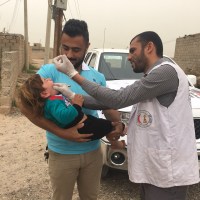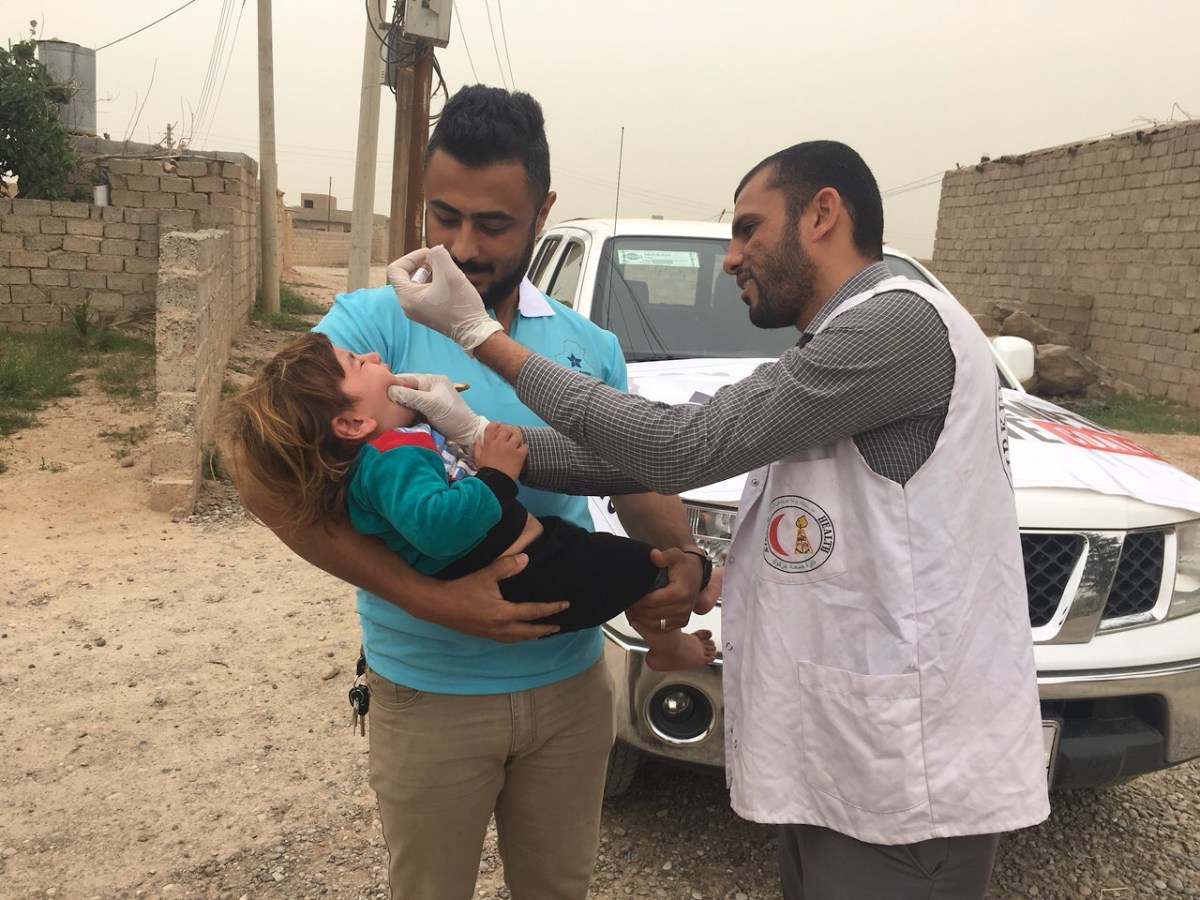The only controversy surrounding vaccines in Iraq is that children still die and become disabled without them, because of preventable diseases.
The United States has been polio-free for nearly 40 years, thanks to thorough vaccination campaigns. Canada has been polio-free for just over 20 years. Australia was declared polio-free in 2000.
But Iraq is a country where polio–which causes muscle weakness and paralysis, and in some cases, death—still affects the population.
The last outbreak to hit the region was in 2013 in neighboring Syria, which led to cases in Iraq as well. With the large movement of people fleeing war, including refugees crossing the border from Syria to Iraq, the area is considered “high risk for outbreaks.”
In addition, there are a large number of people currently living with the debilitating effects of contracting polio in their youth.
The impact of diseases like polio are felt harder in developing nations because there are fewer resources to care for patients and because life can be difficult and limiting for folks with the kinds of mobility issues that can come with the disease.
But through an immunization programme carried out through primary healthcare clinics, you helped to care for vulnerable children in a very practical way that will protect them from polio for their whole lives.
There are a few reasons why many Iraqi kids miss getting vaccinated.
1. The Iraqi healthcare system is designed so that residents are responsible for managing their own care. Patients have to seek out specialists when they are sick and retain any health records themselves. Children who live in rural areas far from health care facilities might not visit a doctor at all, especially if they have no visible illness. Many simply never see a doctor who might ask if they’ve been vaccinated.
2. Families displaced by war, whose lives are disrupted in every way imaginable, often can’t access healthcare. And when they do manage to, age-appropriate vaccines are usually the last things on their minds. They understandably prioritize immediate injuries and chronic diseases.
3. Children who lived in ISIS–controlled areas during the war missed out on vaccines. Suffice to say, high-quality public health wasn’t exactly one of ISIS’ priorities.
The primary healthcare centers you support are located in areas devastated by ISIS, exactly the places where children are most likely to miss out on vaccines.
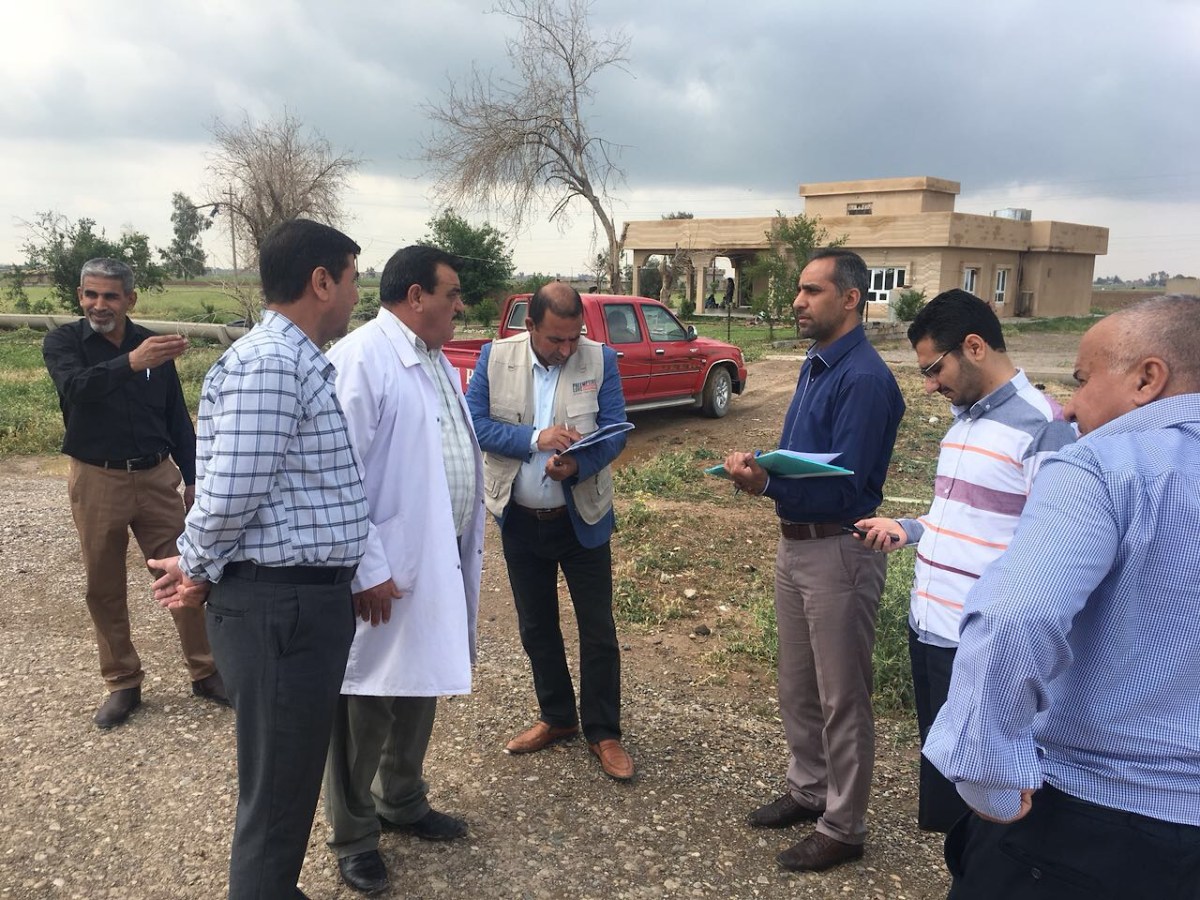 Last year, you provided funding for medical teams to set up at checkpoints where families were gathering as they fled ISIS. You provided polio and measles immunizations to families on the run, who wouldn’t otherwise be able to access the vaccines.
Last year, you provided funding for medical teams to set up at checkpoints where families were gathering as they fled ISIS. You provided polio and measles immunizations to families on the run, who wouldn’t otherwise be able to access the vaccines.
This year, the situation in Iraq was different. With ISIS gone from much of the territory they previously held, many families have returned home. Teams from the health clinics and Ministry of Health officials met with community leaders and parents to determine the need for vaccines.
They found, as they suspected, a huge need for polio immunization in children under five years old.
Polio is a highly contagious disease that spreads through contact with an infected person’s cough or sneeze droplets, or stool. Good hygiene and handwashing are essential for prevention.
But if you have children, you know that kids can’t be kept sanitized all the time! In areas where access to clean water is an ongoing problem, which is much of Iraq, this is especially difficult. A child who is exposed to the polio virus and then touches a toy or food which later ends up in their mouth is likely to contract and spread the disease.
Immunization is the only way to make sure that Iraqi children are polio-free.
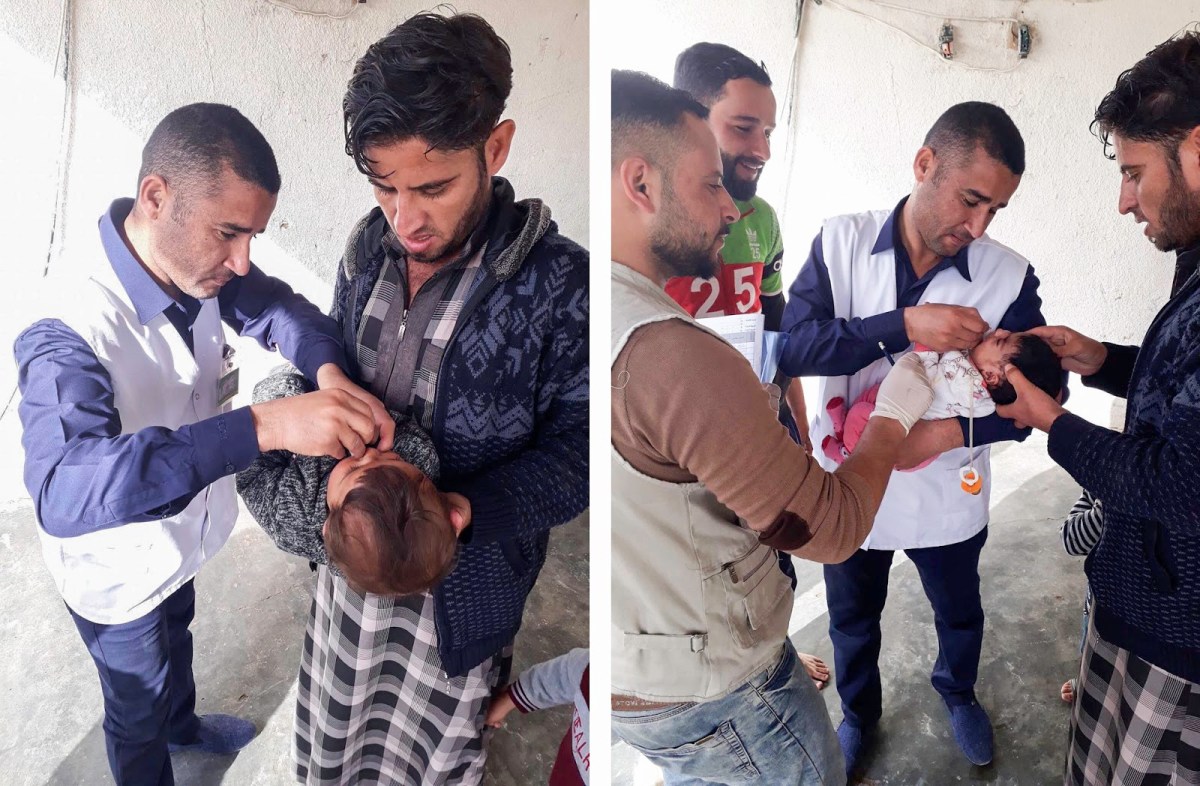
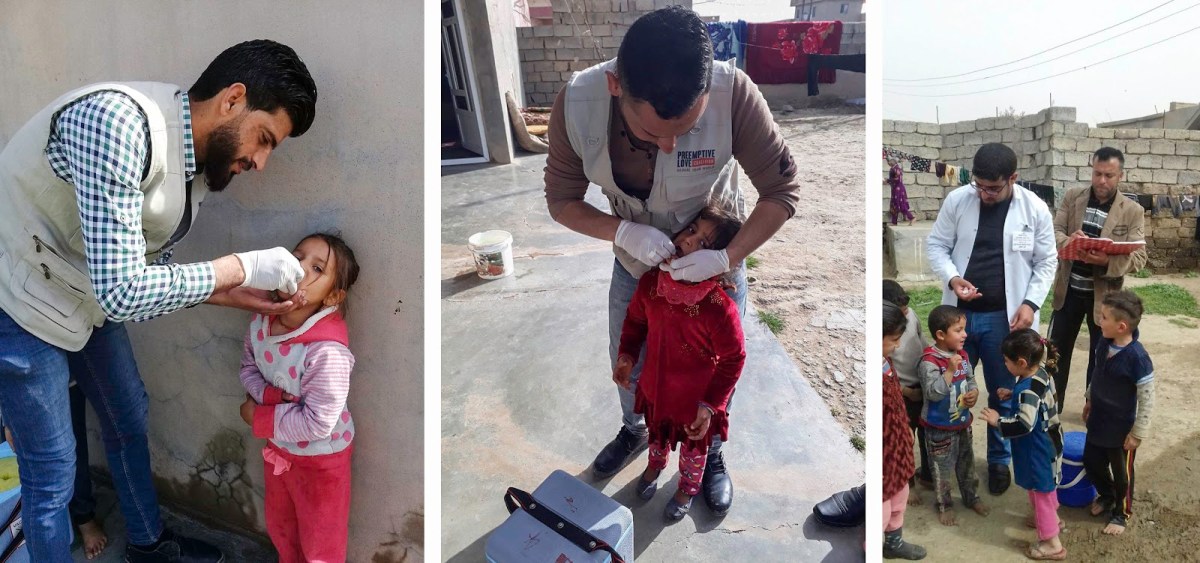
So teams supplied with coolers packed with vaccine vials revisited the areas they had surveyed earlier. They drove down every dirt road in their district and went house to house. Every child under the age of five who had not been previously immunized received the polio vaccination.
This is one vaccine children don’t mind having, since there are no needles involved! 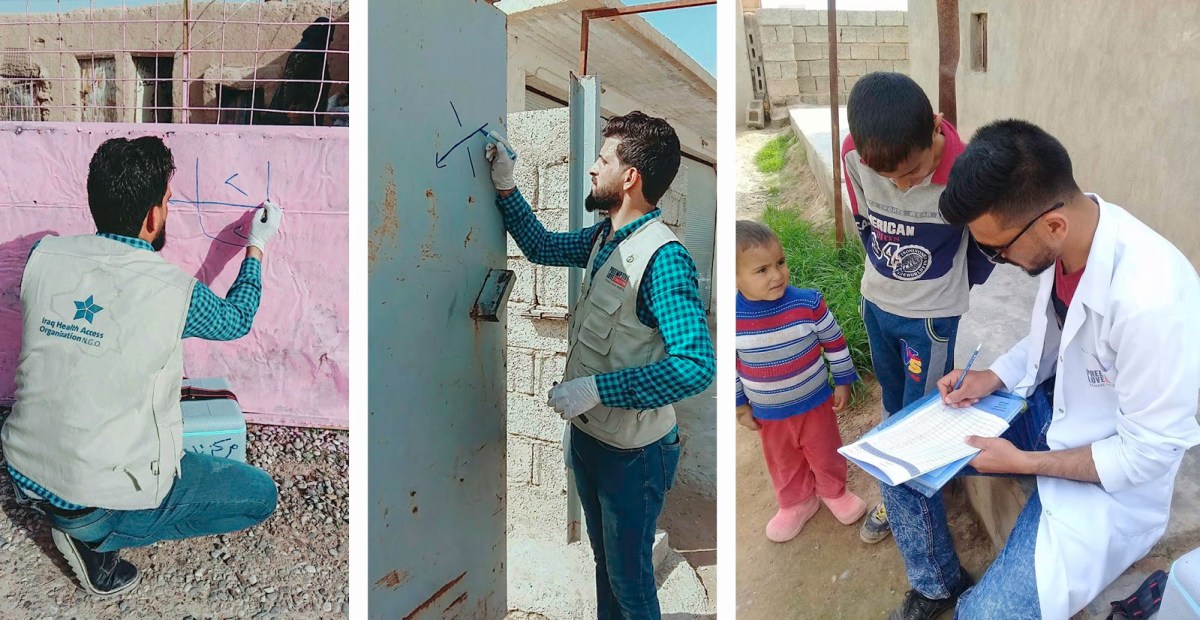
Record keeping is essential when it comes to immunizations. Not only do teams maintain the required medical records for the Ministry of Health, but in order to ensure that children aren’t missed or double vaccinated, teams write their activity on the garden walls or gates of each house they visit. The total number of children, and number vaccinated are marked clearly, as an efficient way to communicate across varied agencies.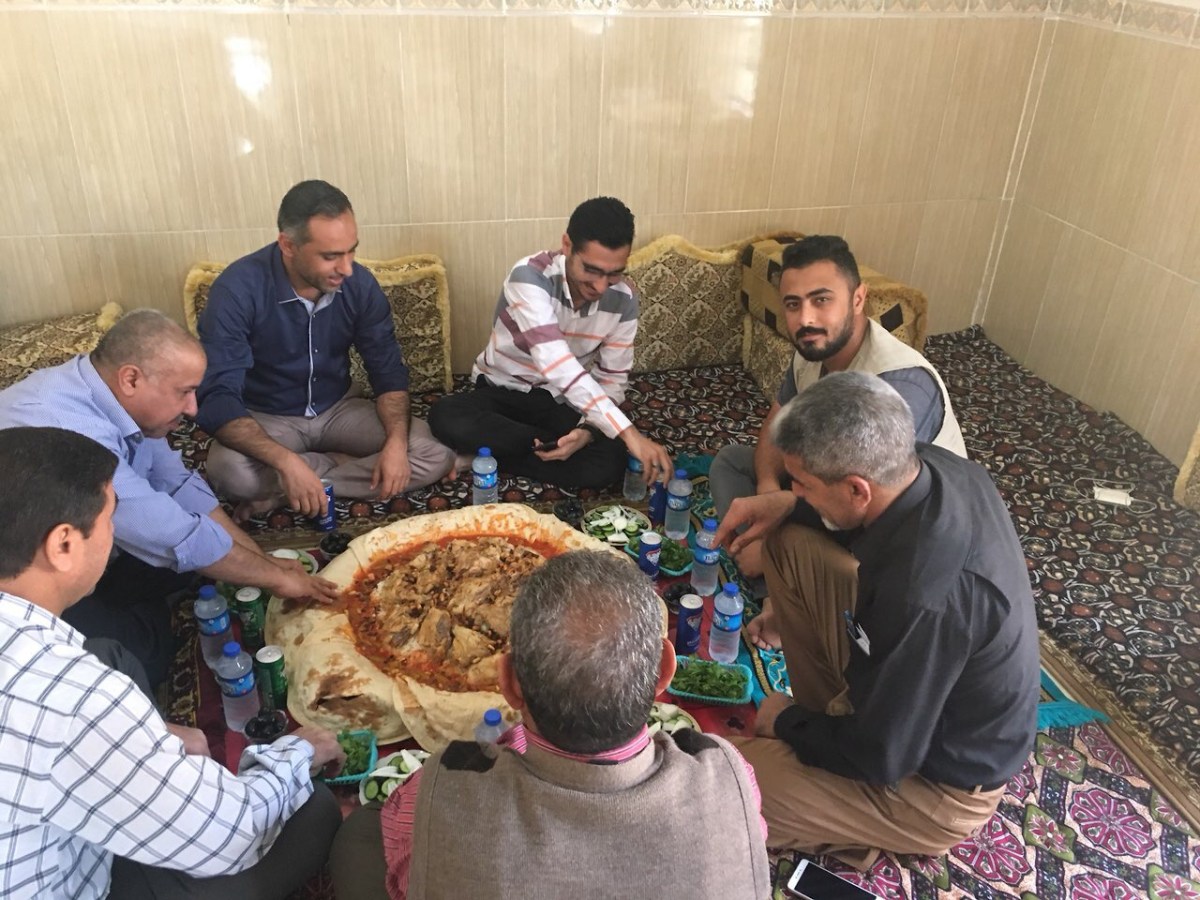
Sometimes the health teams are invited by local families to celebrate afterward! It is no small thing for vulnerable families to feel cared for, and to know their children are prioritized, valued, and protected.
For vulnerable children, love can look like a polio vaccine.
For hungry health workers, love can look like a generous homemade lunch.
For families, love can look like a future free from preventable disease.

